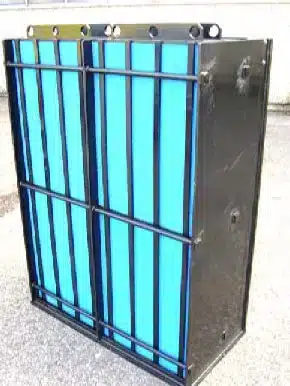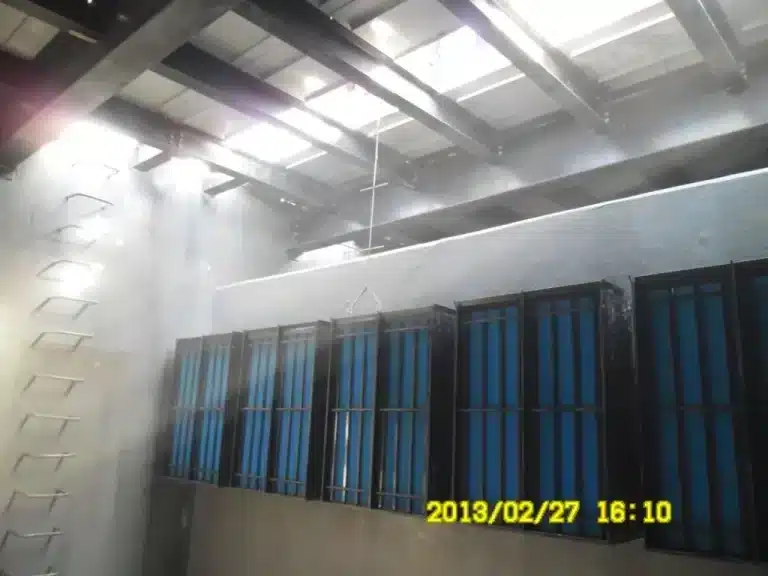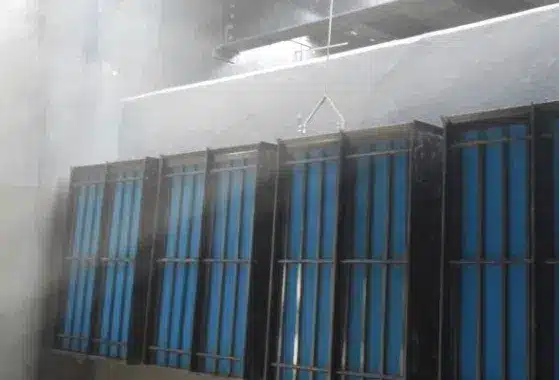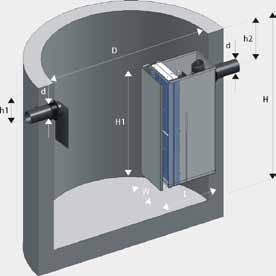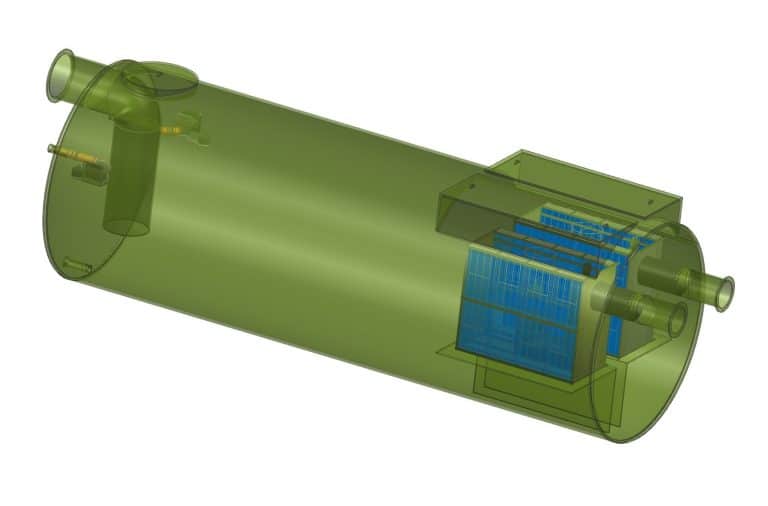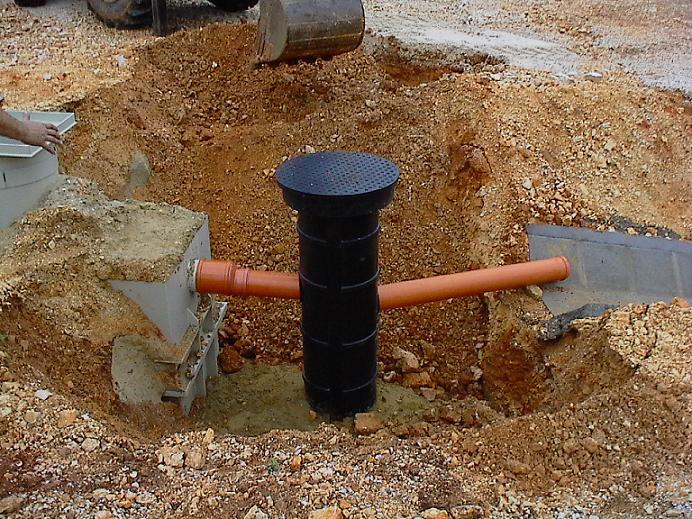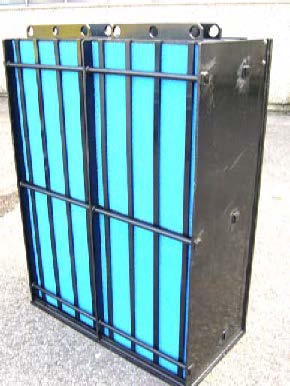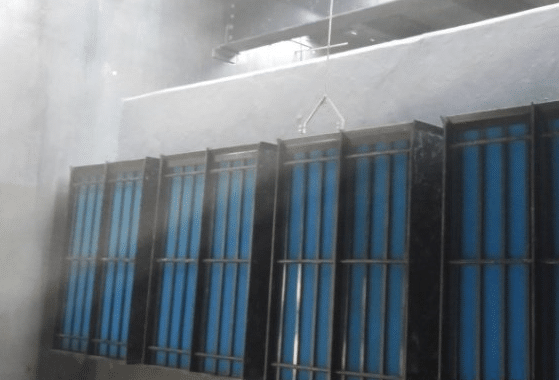Have you ever thought about what’s under Quebec’s busy cities? There’s more than just pipes and cables. A key system protects our environment: below ground oil-water separators (OWS). These systems are crucial in Quebec, dealing with the challenges of the underground.
In Quebec Below Ground OWS systems are key to keeping our water clean. As cities grow, both above and below ground, we need these systems more than ever. They make sure oil doesn’t get into our water.
Recently, Environment and Climate Change Canada has been reviewing rules and looking at new tech for storage tanks. This focus on innovation keeps Quebec’s underground safe and green. It sets a high standard for oil-water separation in North America.
Key Takeaways
- Below ground OWS are essential for Quebec’s environmental protection
- Subterranean networks require specialized oil-water separation solutions
- Regulatory updates focus on new technologies and standards
- Quebec’s underground infrastructure faces unique environmental challenges
- Efficient OWS systems are crucial for urban development sustainability
Understanding Below Ground Oil Water Separators in Quebec
Below Ground Oil Water Separators are key in Quebec’s fight against pollution. They keep underground water clean by separating oil and water. As more underground spaces are built, the need for these systems grows.
Oil-Water Separation in Underground Environments
Underground areas have a hard time dealing with oil and water mixtures. Below Ground Oil Water Separators are made for these tough conditions. They work hard to keep oil out of Quebec’s water, protecting the environment and people’s health.
Regulatory Compliance in Quebec
Quebec has strict rules for oil-water separation. The province follows ECCC’s Storage Tank Systems for Petroleum Products rules. These rules, set in 2008, help prevent leaks and spills. Companies must follow these standards to protect the environment and avoid fines.
Challenges of Below Ground OWS Installation
Installing Below Ground Oil Water Separators in Quebec is not easy. The cold winters can make them less effective over time. They must be carefully planned to fit with other underground structures. Keeping them working well underground requires special design and regular maintenance. But, when done right, they help separate oil and water, protecting the environment.
The Underground City of Montreal: A Case Study for Below Ground OWS
Montreal’s underground city, known as RÉSO, is a vast network below the streets. It shows the need for special oil-water separation solutions. This system includes underground malls, Metro tunnels, and walkways that stretch over 20 miles.
RÉSO: Montreal’s Extensive Subterranean Network
RÉSO connects buildings and shopping areas, offering a climate-controlled space for people. It has over 1,600 shops, restaurants, and services. This makes it a busy place to be, no matter the weather outside.
Oil-Water Separation Needs in Underground Malls and Metro Tunnels
The underground mall and Metro tunnels in RÉSO face special challenges for oil-water separation. They have a lot of foot traffic and are used a lot. So, they need efficient systems to handle wastewater and keep it from contaminating the area. It’s important to separate oil and water properly to keep the environment safe.
Integrating OWS Systems with Existing Underground Infrastructure
Adding oil-water separators to RÉSO requires careful planning. The underground city has limited space and a complex layout. So, we need custom OWS solutions that fit well and follow strict environmental rules.
Quebec Below Ground OWS: Advanced Technologies and Solutions
Quebec leads in protecting the environment with its underground oil-water separation solutions. These technologies face the tough challenges of the underground. They can handle many petroleum products, like motor oil and jet fuel.
Quebec’s Below Ground OWS systems use advanced coalescing technology. This tech helps separate free oil and tiny amounts of emulsified oil. The aim is to meet or beat North American standards.
While the usual standard is 10 PPM, Quebec’s solutions aim for much lower levels. Some systems can get down to 0.1 PPM. This means the water they discharge is very clean.
Using these advanced OWS technologies shows Quebec’s dedication to the environment. By investing in top-notch systems, Quebec leads in water quality and pollution prevention in North America.
Freytech Inc.: Pioneering Below Ground OWS in Quebec
Freytech Inc. is a leader in below ground oil water separator (OWS) solutions for Quebec. They use innovative methods to solve the challenges of separating oil and water underground. Their work is precise and efficient.
Enhanced Coalescing Technology for Superior Separation
Freytech’s enhanced coalescing technology is setting new standards in how well it separates. This system removes hydrocarbons like motor oil, diesel, gasoline, and jet fuel from water. The end result is water that is much cleaner than what’s expected.
Achieving 5 PPM Discharge Compliance
Freytech Inc. goes beyond what’s required in North America with its 5 PPM discharge. Normal standards are 10 PPM, but Freytech does better. In some cases, they can get down to 0.1 PPM, showing their dedication to protecting the environment.
Customized OWS Solutions for Quebec’s Underground Spaces
Freytech Inc. knows Quebec’s underground spaces are unique. They offer customized OWS solutions that fit right in with the existing infrastructure. These systems work well in places like metro tunnels and underground malls. Freytech’s designs are flexible and meet the needs of different underground areas.
Installation and Maintenance of Below Ground OWS in Quebec’s Climate
Quebec’s harsh winter challenges Below Ground OWS installation. Freezing temperatures and heavy snow require special care for optimal performance. Installers must think about frost heave and ice to avoid damage to underground setups. Insulation and heating are key to keep pipes and equipment from freezing.
Long-Term Performance in Subterranean Environments
OWS systems in Quebec’s underground need to be strong. Moisture and groundwater can shorten equipment life. Using materials that resist corrosion and protective coatings is a must. Regular checks spot and fix problems early, keeping the system working well to separate oil from water.
These separators are crucial in storm water systems. They process runoff to meet the US EPA’s Clean Water Act standards. With effective oily water treatment, facilities protect the environment and dodge big fines.
OWS Maintenance Protocols
Keeping OWS systems in check is crucial in Quebec’s climate. Technicians should regularly inspect pumps, filters, and sensors. Cleaning out sludge and debris stops system overload. In winter, focus on heating and insulation. Following the manufacturer’s advice and local rules helps ensure Below Ground OWS work well in Quebec’s tough underground.
Conclusion
Quebec’s below ground OWS solutions lead in protecting the environment underground. They handle the tough challenges of subterranean spaces well. This ensures effective oil-water separation in many places.
From the big RÉSO network to industrial uses, Quebec Below Ground OWS is key to keeping up environmental standards.
Advanced tech, like what Freytech Inc. offers, makes underground oil-water separation more efficient. These technologies meet strict environmental rules and fit Quebec’s underground needs. They can get discharge levels down to 5 PPM, which meets North American standards.
As rules change and new tech comes out, Quebec’s below ground OWS gets better. This keeps protecting the environment a top goal in the province’s underground areas. The success in places like Montreal’s Underground City shows how important these systems are for cities and industries.

